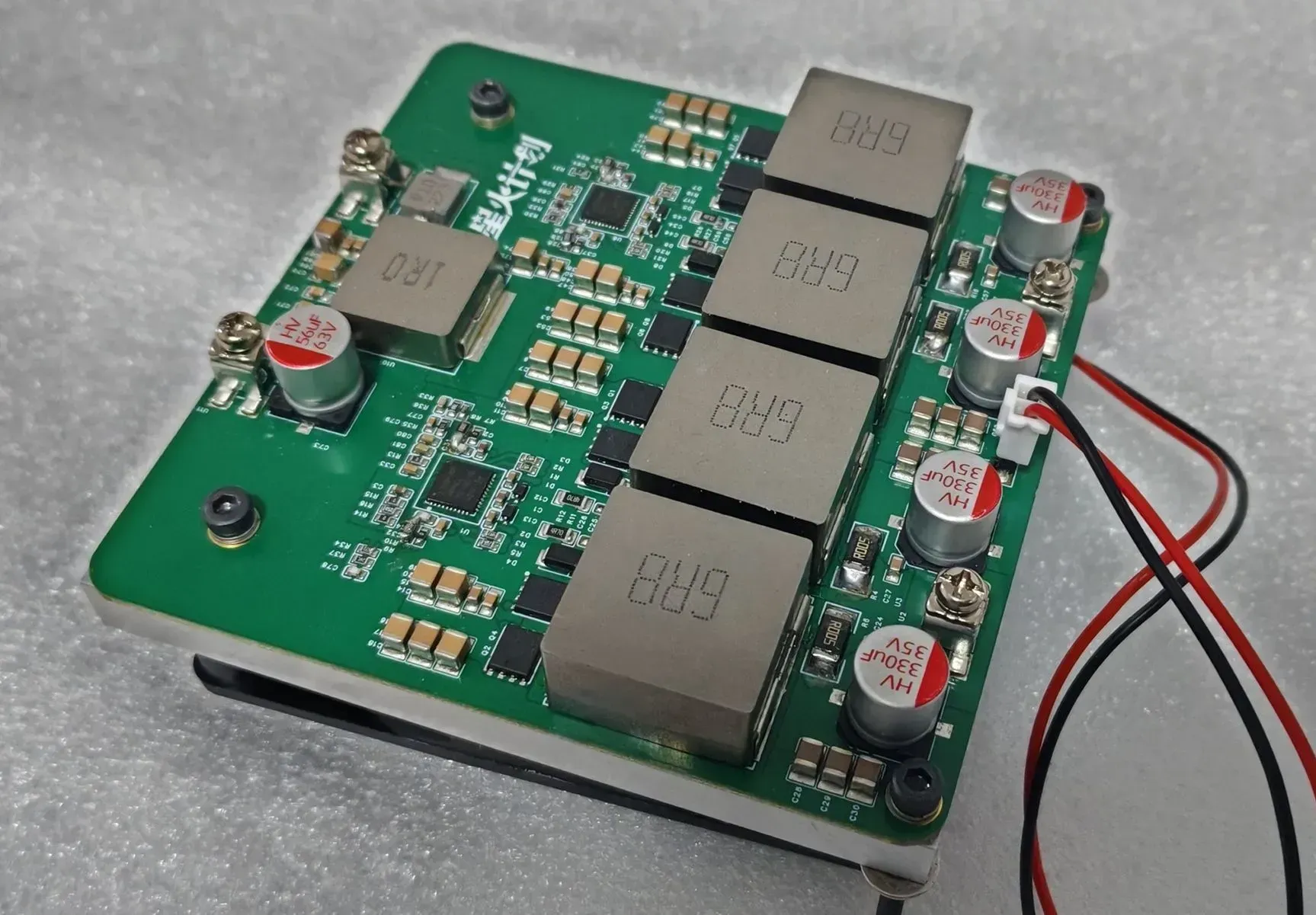 Completed
Completed12V desktop power supply
PRO 12V desktop power supply
12V desktop power supply
License
:CC BY-NC-SA 3.0
Description
Project description
1. The design index of this desktop mobile power bank is:
Input: 48Vmax
Output: 12V 58.4A 0.2Vpp
Operating frequency: 200kHz
2. Synchronous freewheeling scheme: LM5143 is a 65V synchronous buck DC/DC controller suitable for high current single or dual output.
Open source license
CC-BY-NC-SA 3.0, Creative Commons Licensing Agreement - Attribution - Non-Commercial Use - Share Like-Like
CC : Abbreviation for Creative Commons Licensing Agreement (English: Creative Commons license )
BY : Attribution, you must give appropriate attribution, provide a link to this Licensing Agreement, and indicate whether modifications have been made (to the original work).
SA: If you remix, transform, or build upon this work, you must share your contribution under the same Licensing Agreement as the original Licensing Agreement.
NC : Non-commercial use, you may not use this work for commercial purposes.
For more information, please refer to:
Creative Commons — Attribution-NonCommercial-ShareAlike 3.0 Unported — CC BY-NC-SA 3.0
Project related features
In addition to being used for 12V desktop power banks, this project can also be used for:
Electric motorcycle and electric bicycle converters: LM5143 can serve as the core power management chip for electric motorcycle and electric bicycle converters, providing stable and efficient power.
High-voltage analog/digital system: suitable for analog or digital systems that require high-voltage power supply to ensure stable system operation.
Industrial control system: In industrial automation and control systems, LM5143 can provide the required high-voltage and high-current power supply to ensure the reliability of the system.
Telecommunications power system: As a power management solution for telecommunications base stations, it ensures stable power supply for communication equipment.
Ethernet POE: In Power Over Ethernet (POE) applications, the LM5143 can provide the required power management capabilities.
Portable mobile devices: Provide efficient power solutions for portable devices to extend device usage time.
Inverter system: Use LM5143 in the inverter system to achieve efficient energy conversion and power management.
Item properties
This project is the first public announcement and is my original project. The project has not won any awards in other competitions.
/*********************************************************************************************************
At the beginning, I made at least two versions of EG1163S for the 12V30A360W power module, but it didn't work when powered on. Later, I switched to MK9218.
* Only 13A-14A was tested (I sent it later). I was so bad that I was lazy and chose a Texas Instruments model. (I changed it to 700W by the way.) Alas........................
*********************************************************************************************************/
Choose one of the parallel inductors (L1, L3), (L2, L4), (L5, L7), or (L6, L8)
*********************************************************************************************************/
* Clever colleagues have discovered that the LM5143 board can shrink from six to four layers.
Note that it is necessary to use a heating table for welding. If the soldering iron and hot air gun package cannot be welded, do not underestimate the power of copper direct connection.
*********************************************************************************************************/
Hardware design
1. Minimum inductance calculation: lm5143 specification
Referring to page 42 (33) of the data sheet, Vout = 12V, Vin = 24V, Delta I = 60/4 * 0.3 = 4.5A, Fsw = 200KHz, we get Lmin = 6.667uH, here we take 6.8uH.
2. Use TI's calculation software (Excel): TI software
The compensation part has been slightly adjusted and did not fully follow the suggestions of "Little Software".
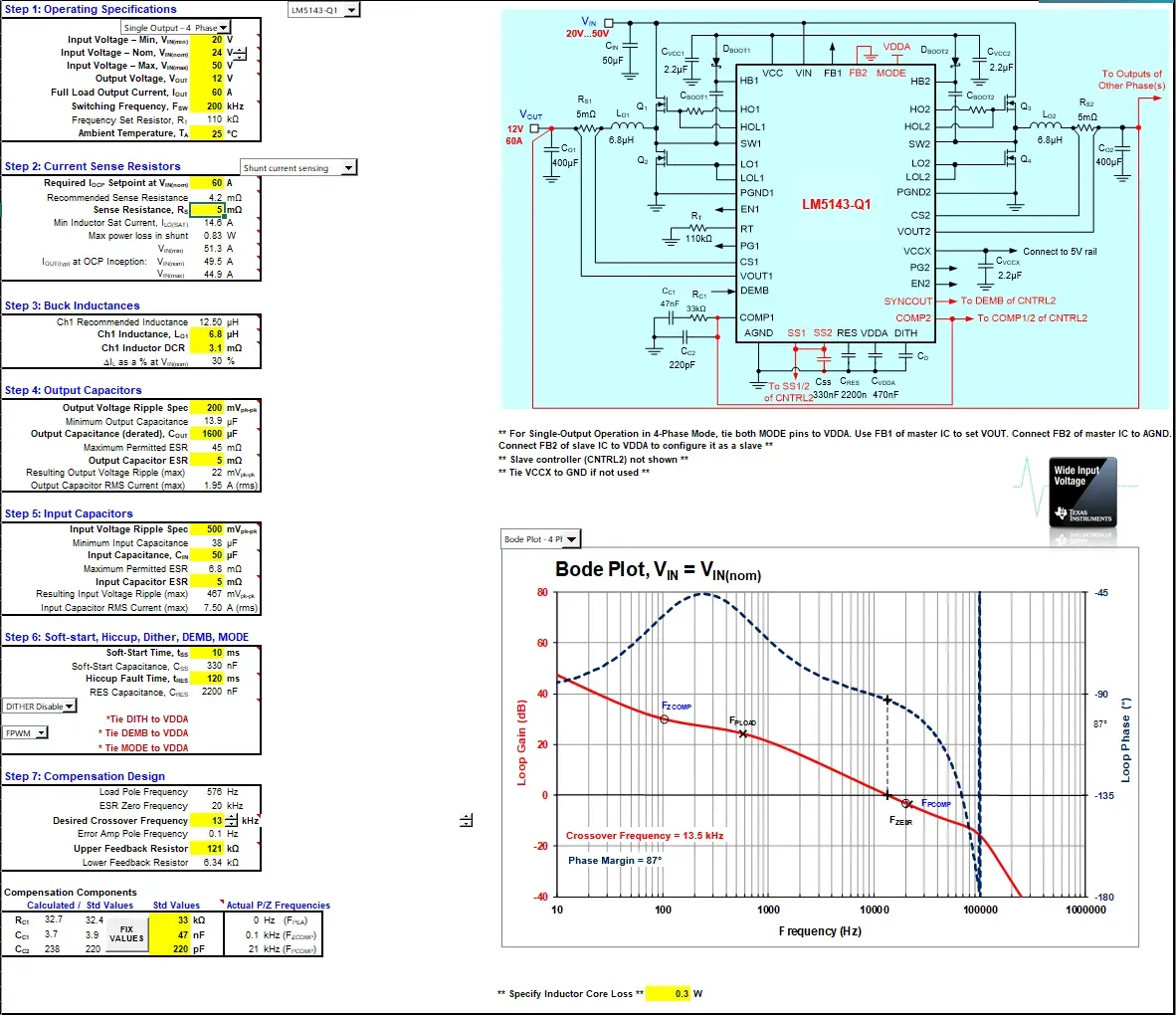
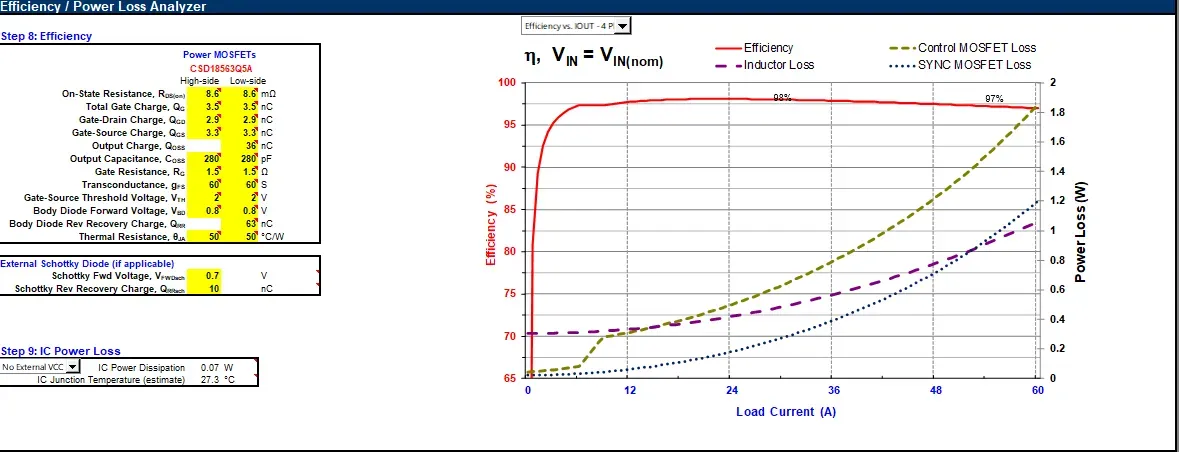
Taobao accessories
2. Heat sink, width 98.5 * height 10 without sticker length 100mm
3. Thermal pad Taijino LV800-50 * 100 thickness 0.5
Other accessories
(Only one resistor is pasted here, not for thermal imaging.)
High power 600W aluminum shell resistor
Testing environment and equipment
Temperature: 21 ℃ -25 ℃
Humidity: 30% RH-60RH%
Air pressure: 1014mbar
Test equipment: 60V20A adjustable power supply (R-SPS6020-232), 200V60A500W electronic load, 600W 0.3Ω aluminum shell resistor (Taobao merchant pressed the terminal poorly, in the picture I crimped and tinned it myself), thermal imager (UTI260E +).
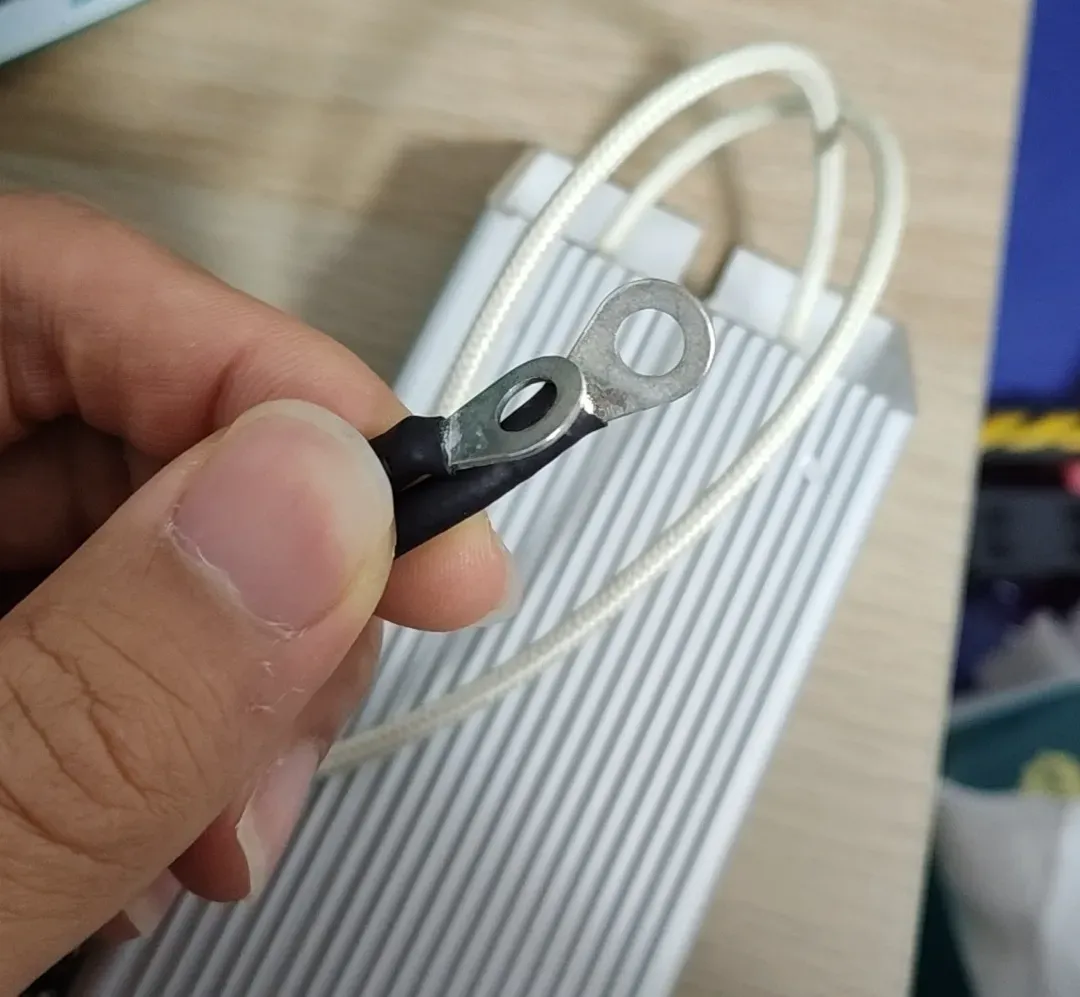
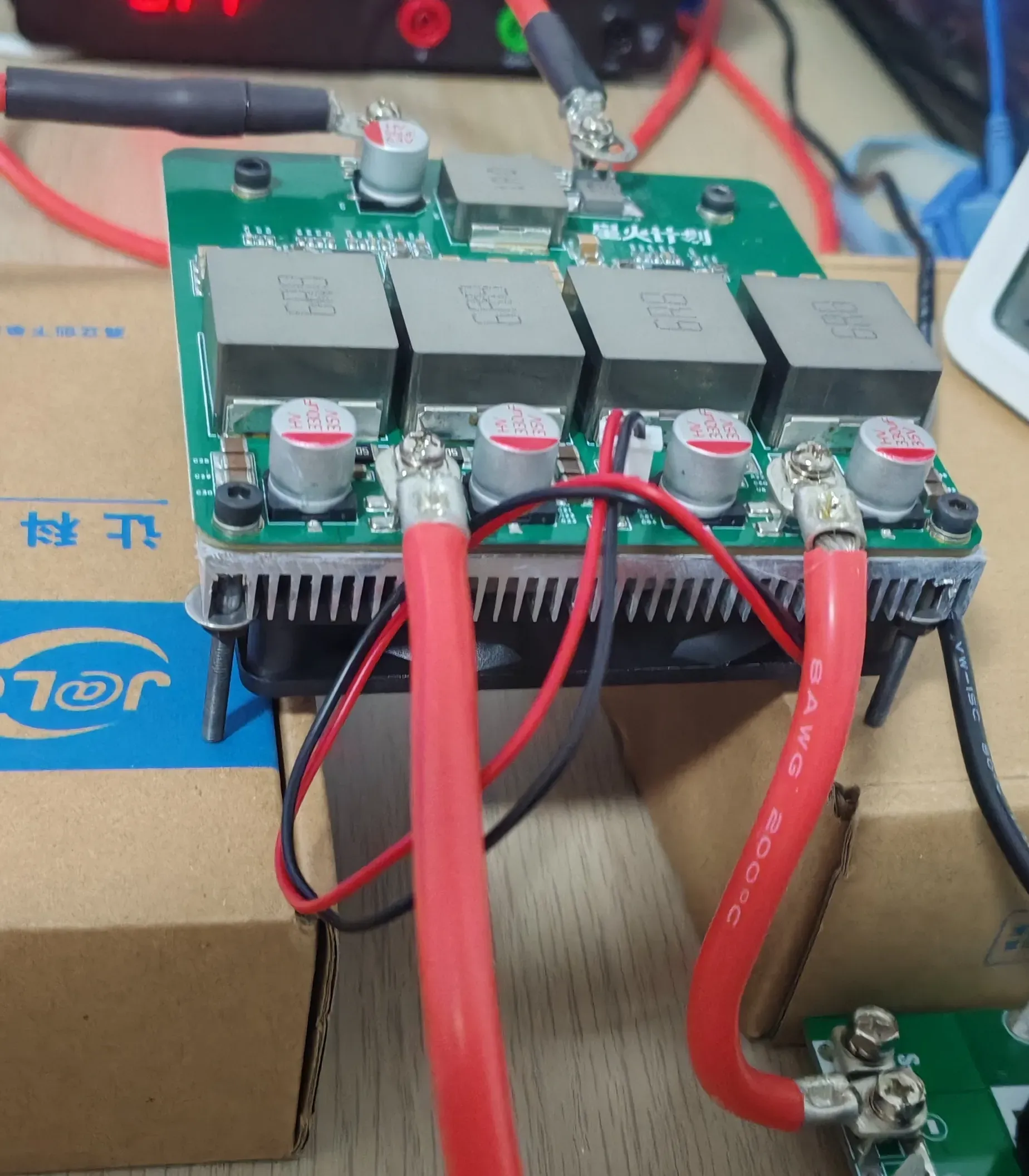
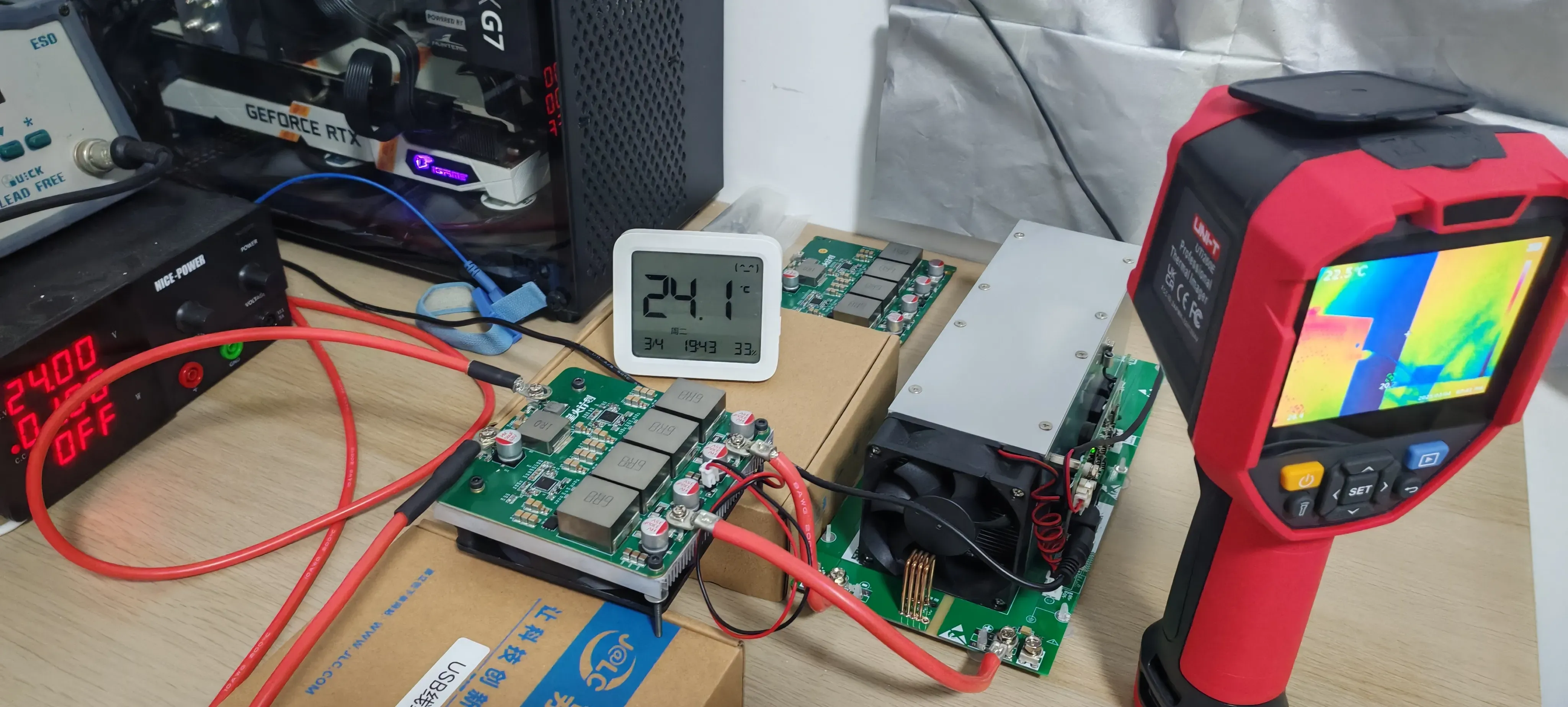
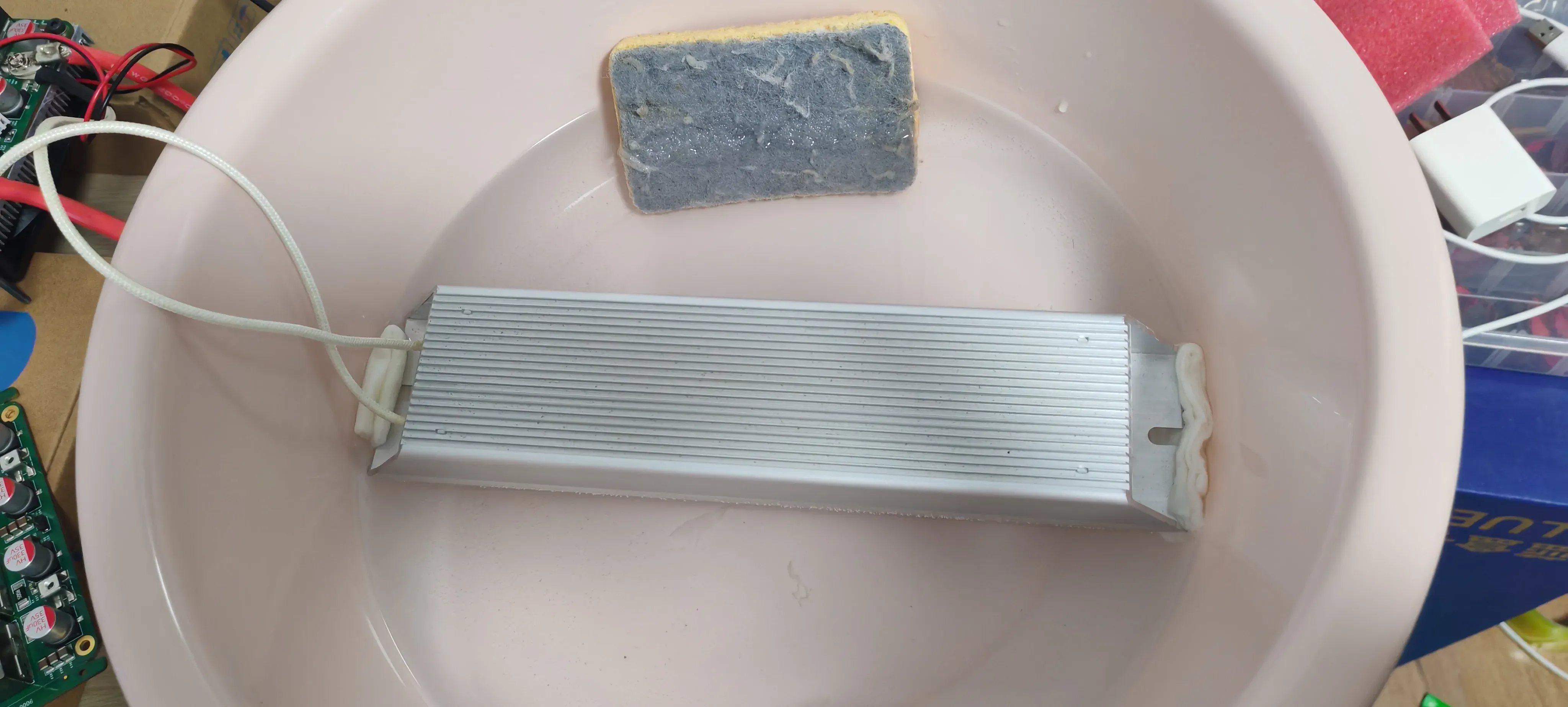
Upper computer picture.
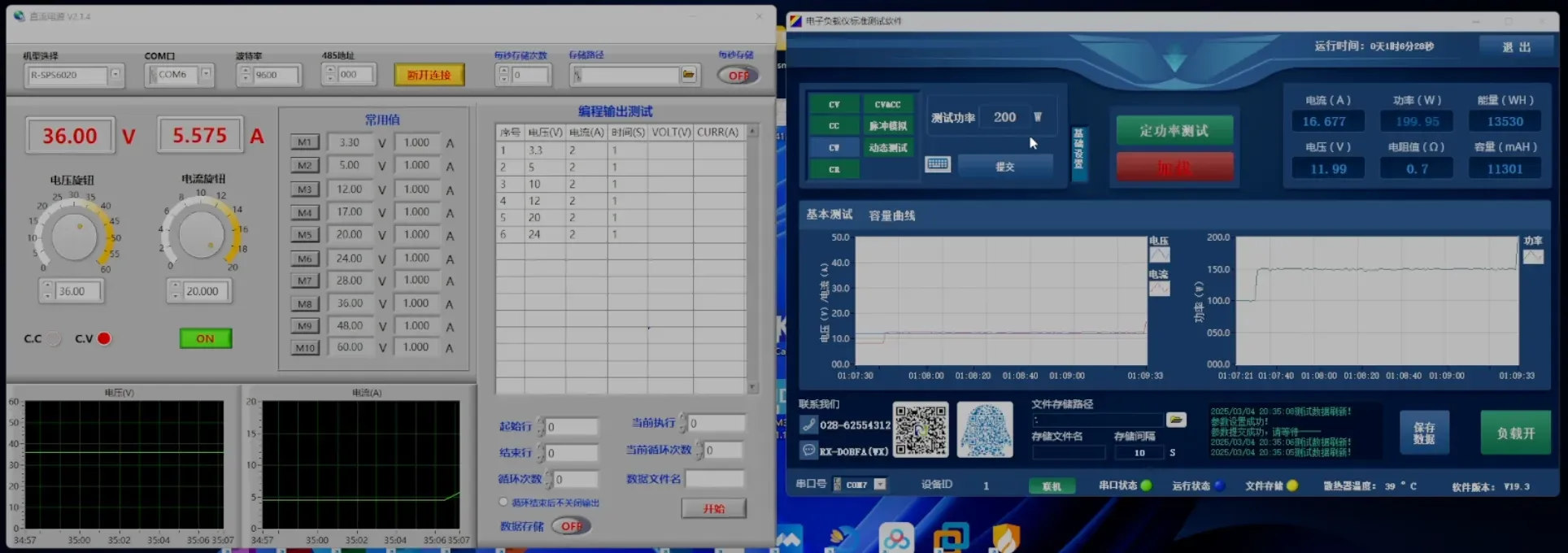
Heat dissipation performance
Picture naming convention: < input voltage > < output power >, for example: 36V500W is input 36V, output 12V500W.
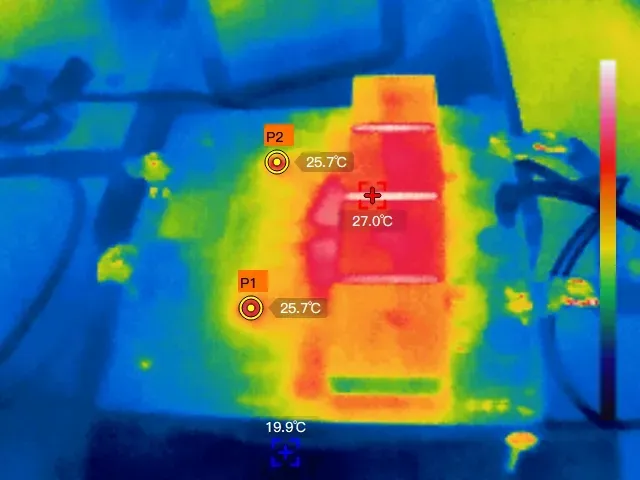
24V50W
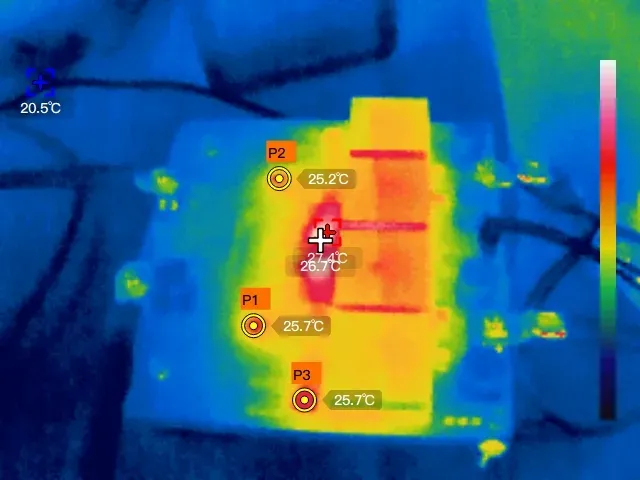
24V100W
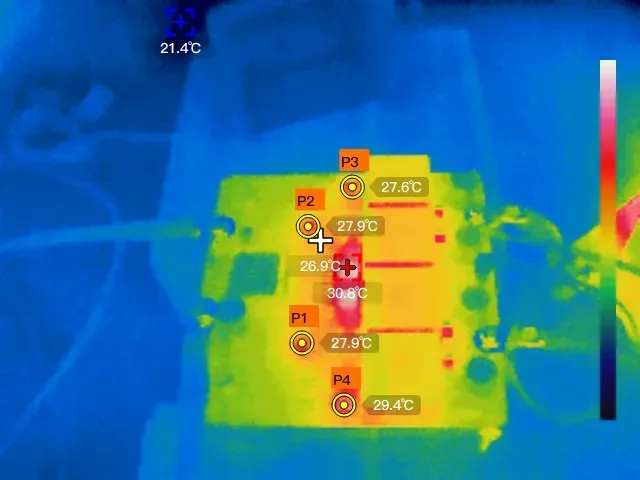
24V150W

24V200W
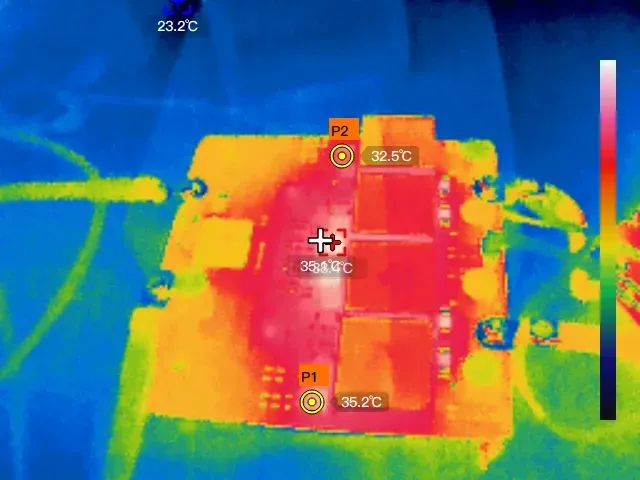
24V250W
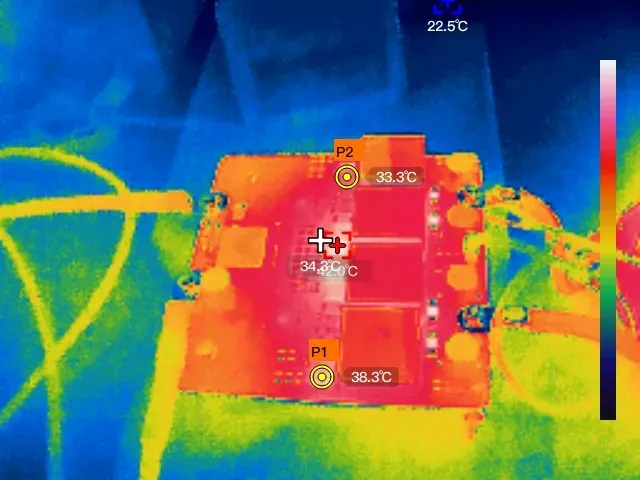
24V300W
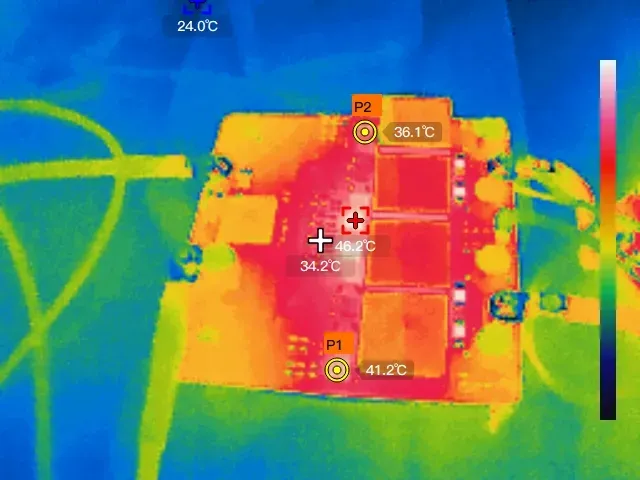
24V350W
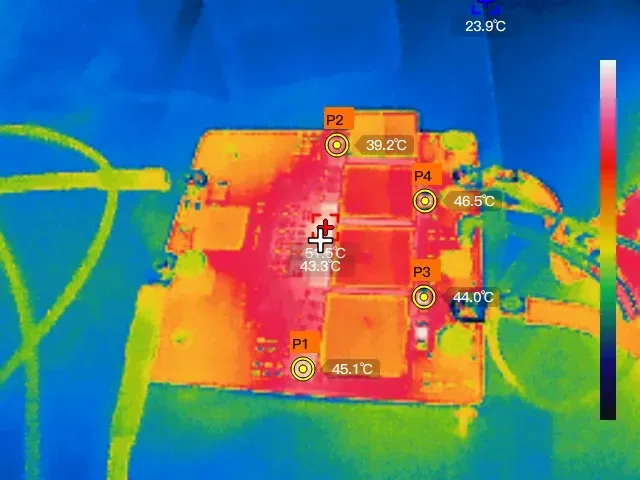
24V400W
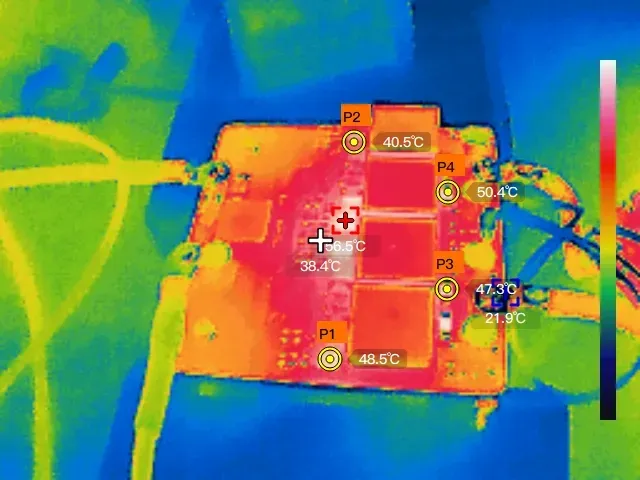
24V450W
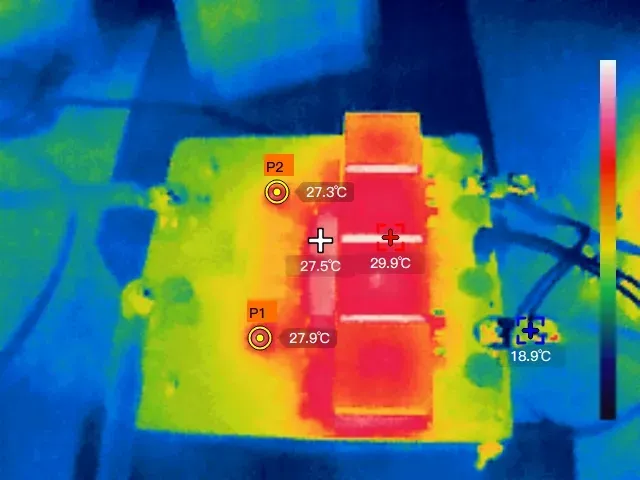
36V50W
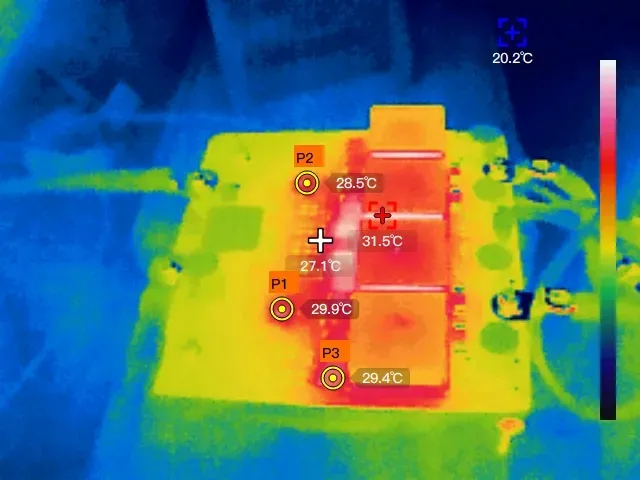
36V100W
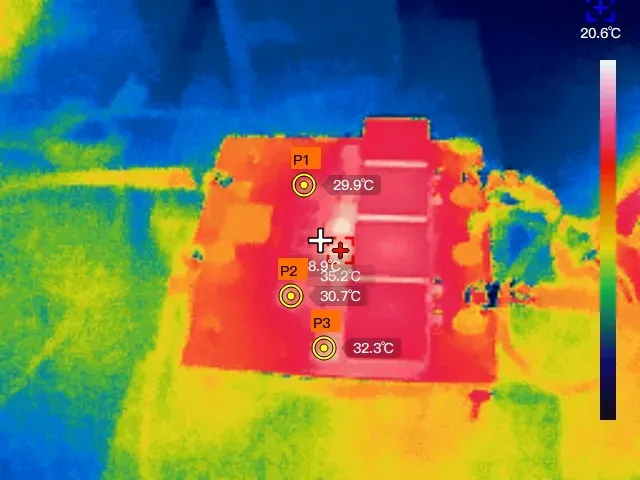
36V150W
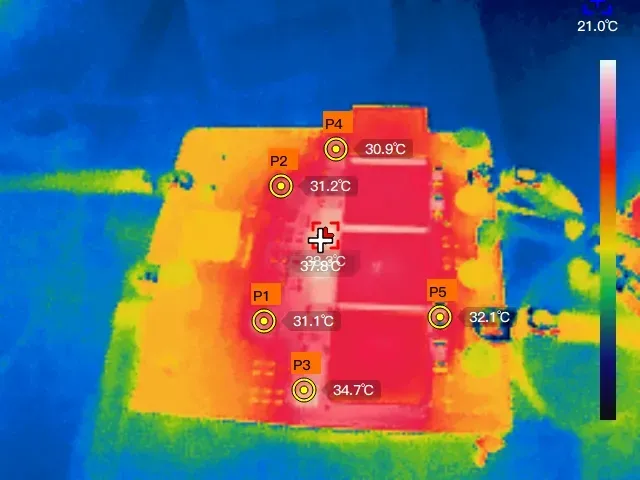
36V200W
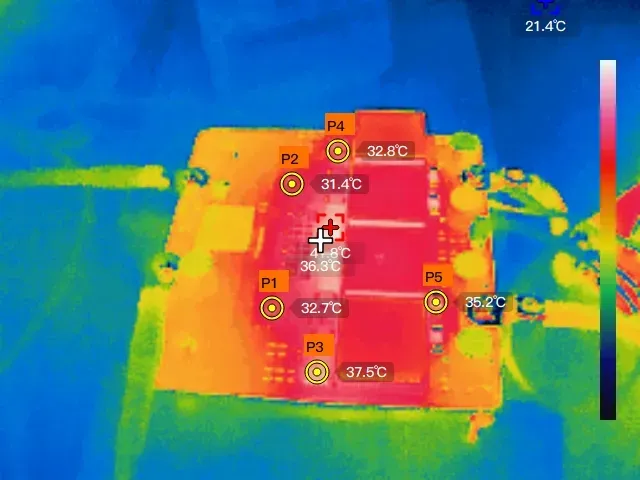
36V250W
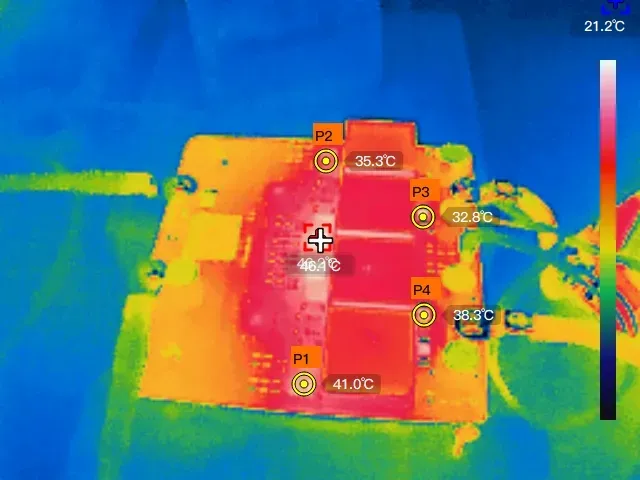
36V300W
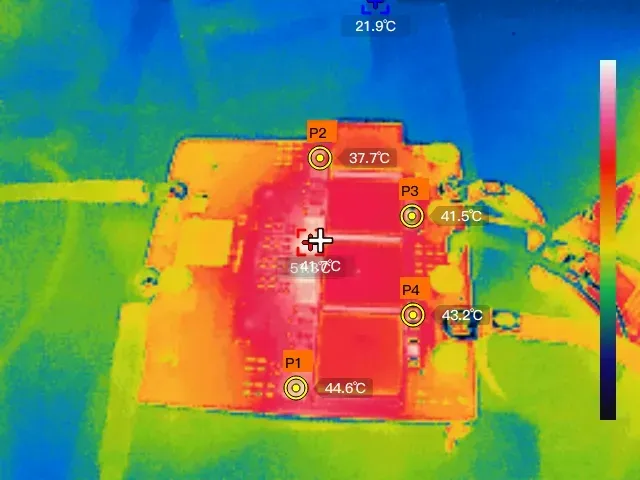
36V350W
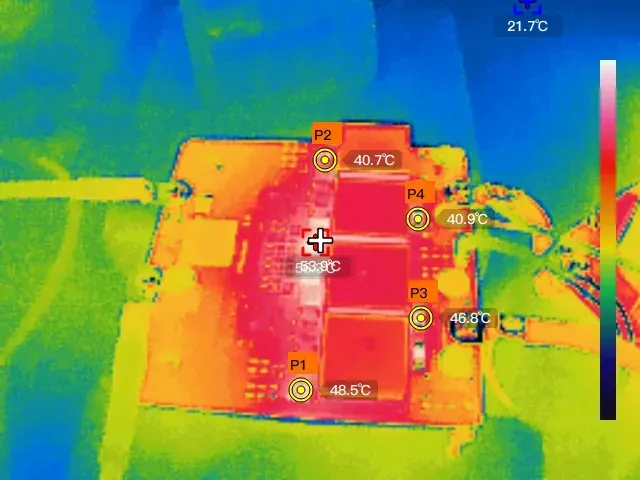
36V400W
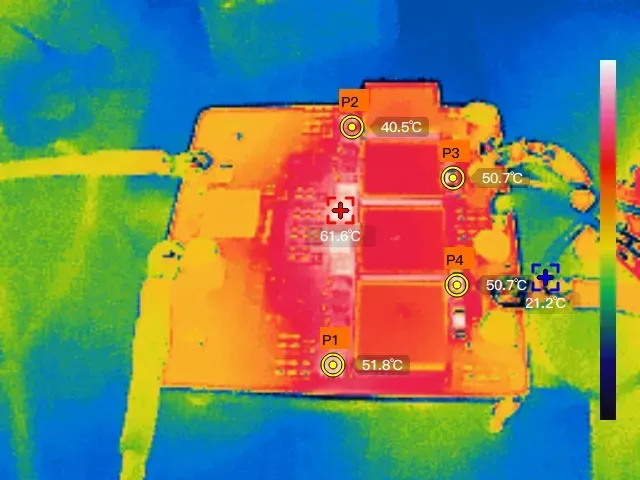
36V450W
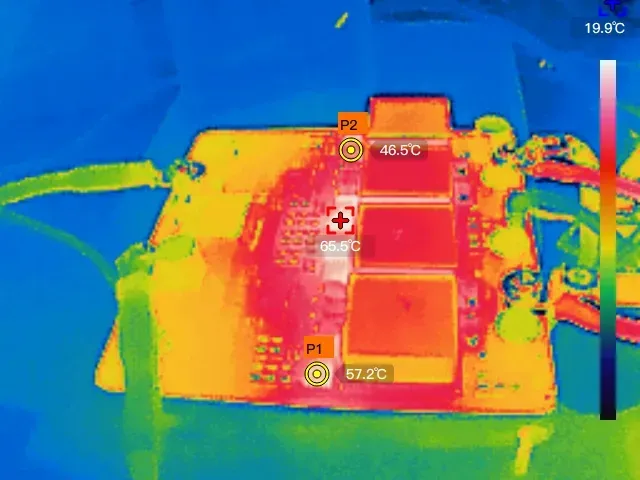
36V500W
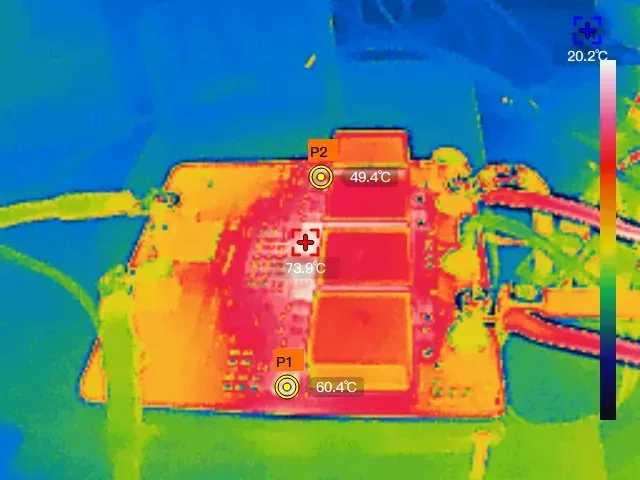
36V550W
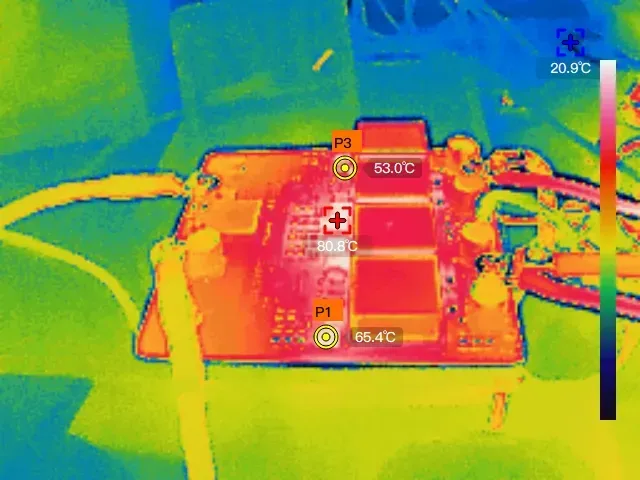
36V600W
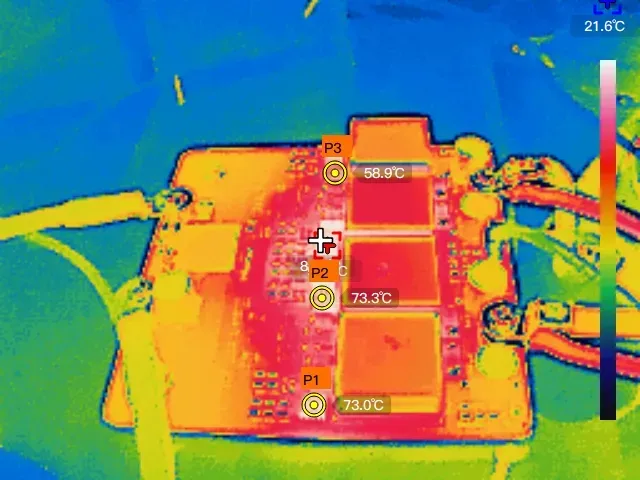
36V650W
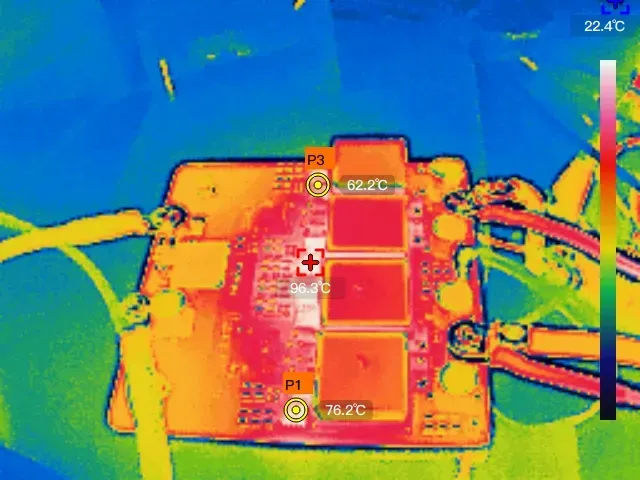
36V700W
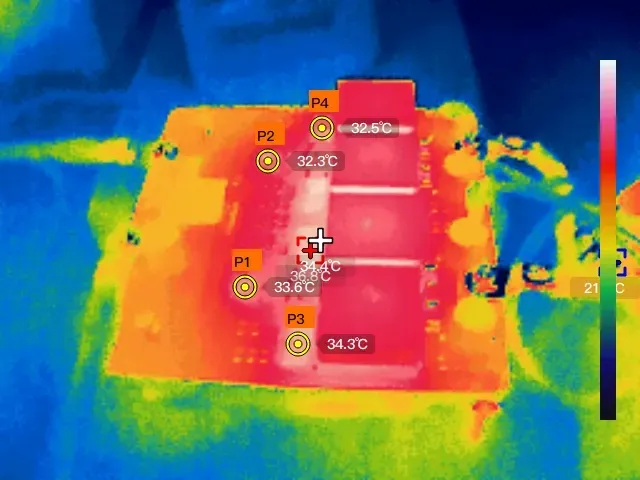
48V50W
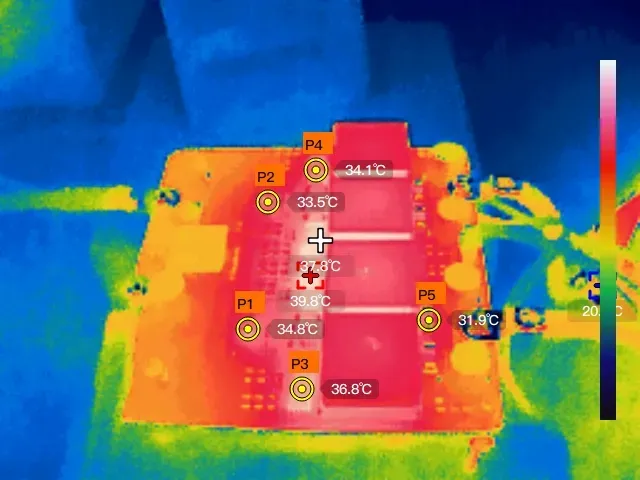
48V100W
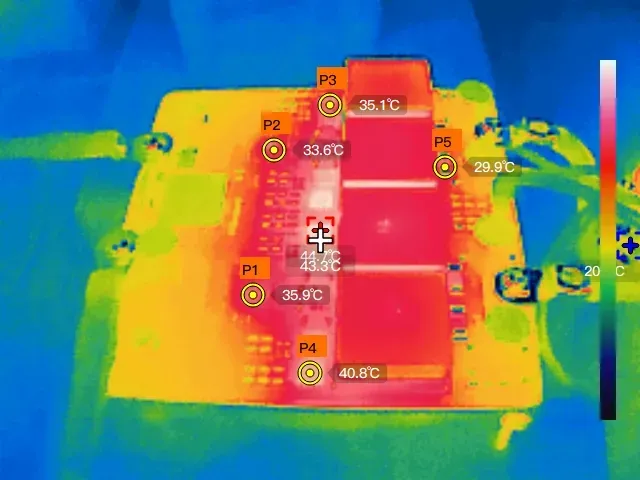
48V150W
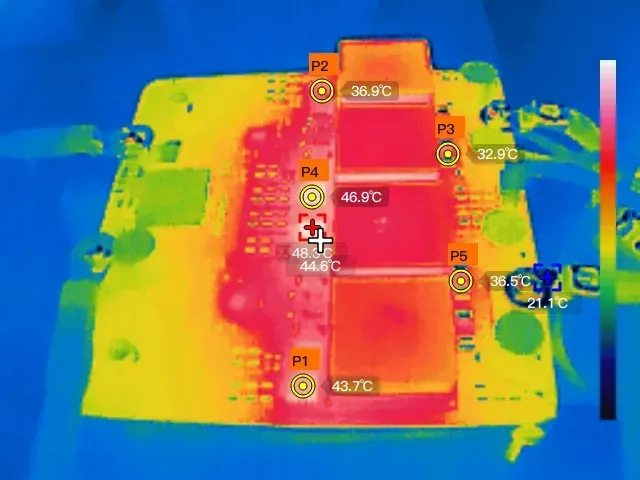
48V200W
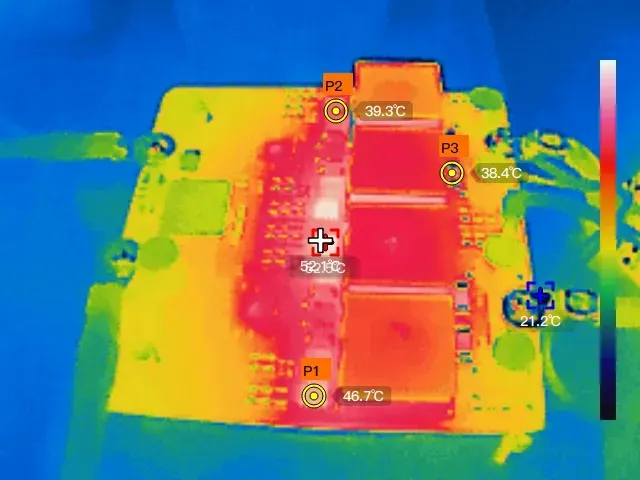
48V250W
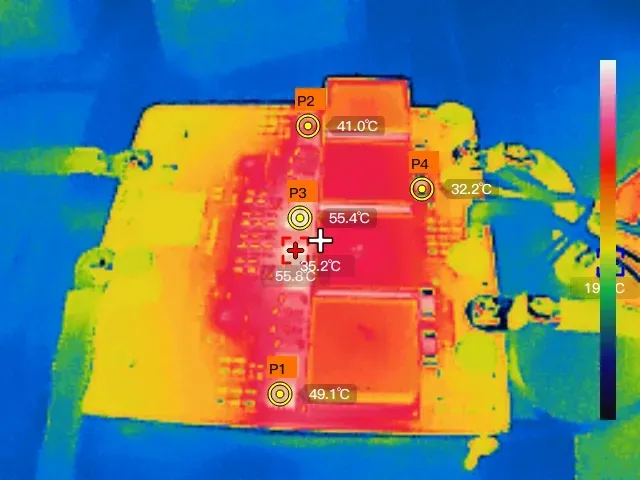
48V300W
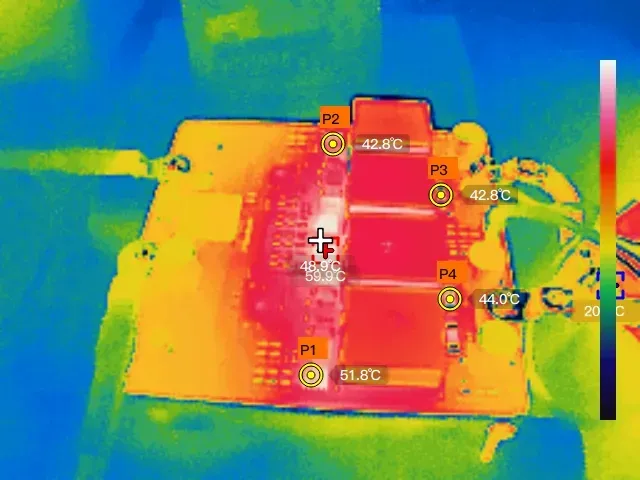
48V350W

48V400W
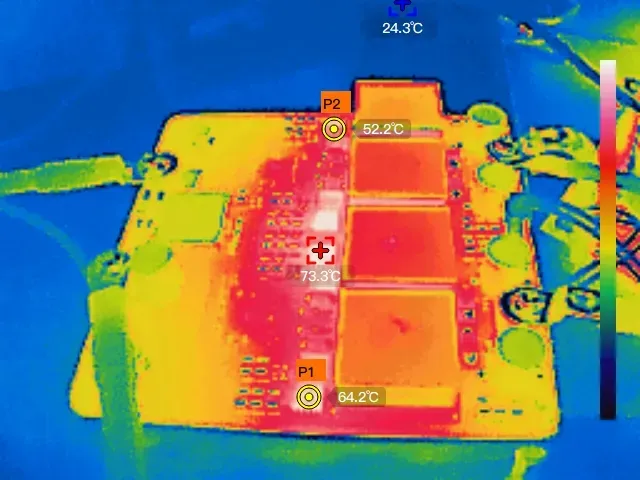
48V450W
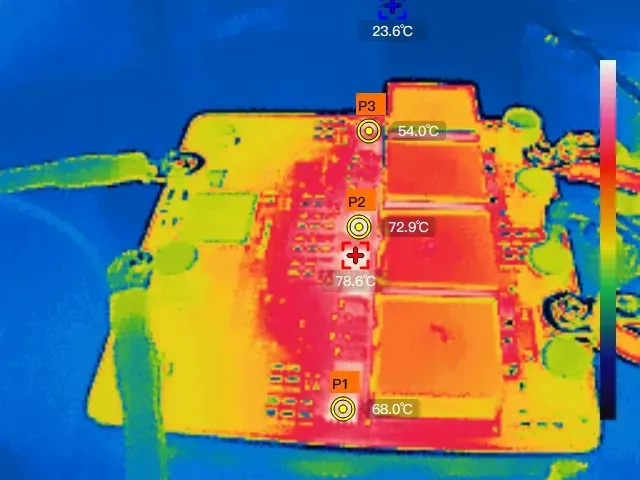
48V500W
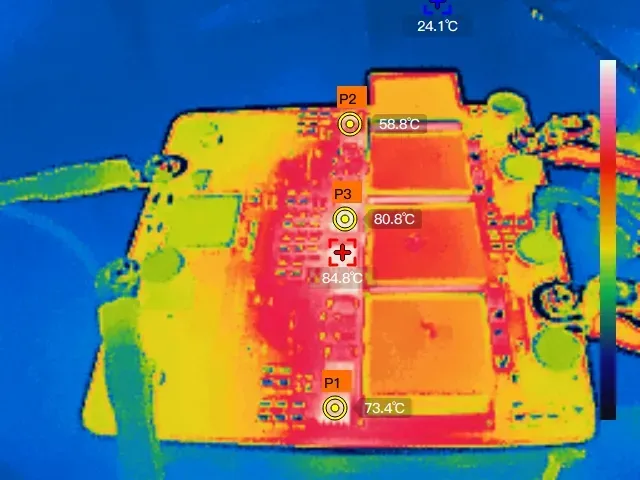
48V550W
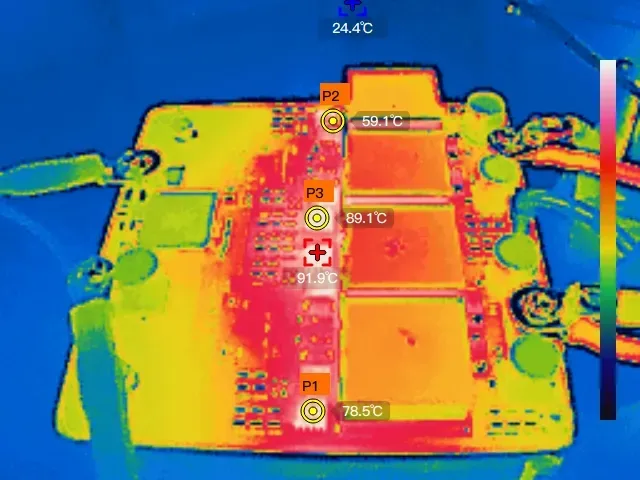
48V600W
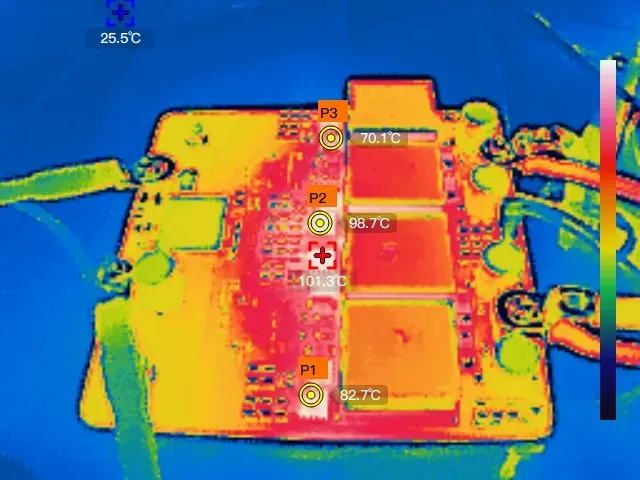
48V650W
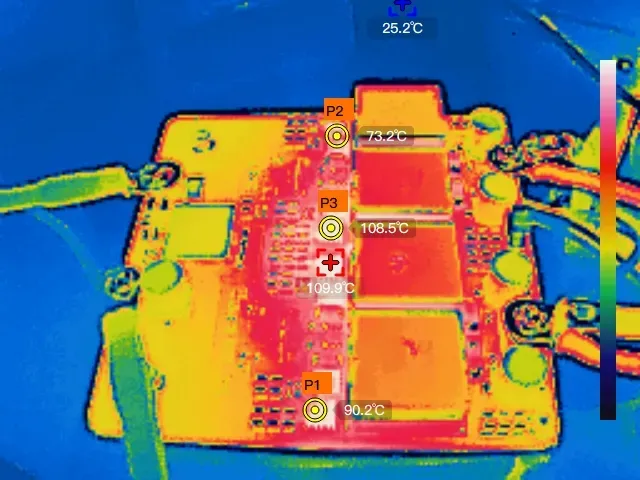
48V700W
Ripple performance
Modify
Improving heat dissipation performance: Step 1: After removing the heat sink, it was found that the main heating area of the PCB was not completely close to the heat dissipation surface due to the deflection of the PCB. After removing the thermal pads at both ends (retaining the middle horizontal MOS part of 50mm × 100mm), the temperature decreased from 109.9 ℃ to 76.2 ℃, a decrease of 33.7 ℃. (Please correct the heat dissipation temperature in the previous section) Step 2: Add a bolt hole in the middle of the PCB. Step 3: Increase the number of MOS vias from 4x4 to 7x7, and increase the number of LM5143 vias from 4x4 to 5x5.
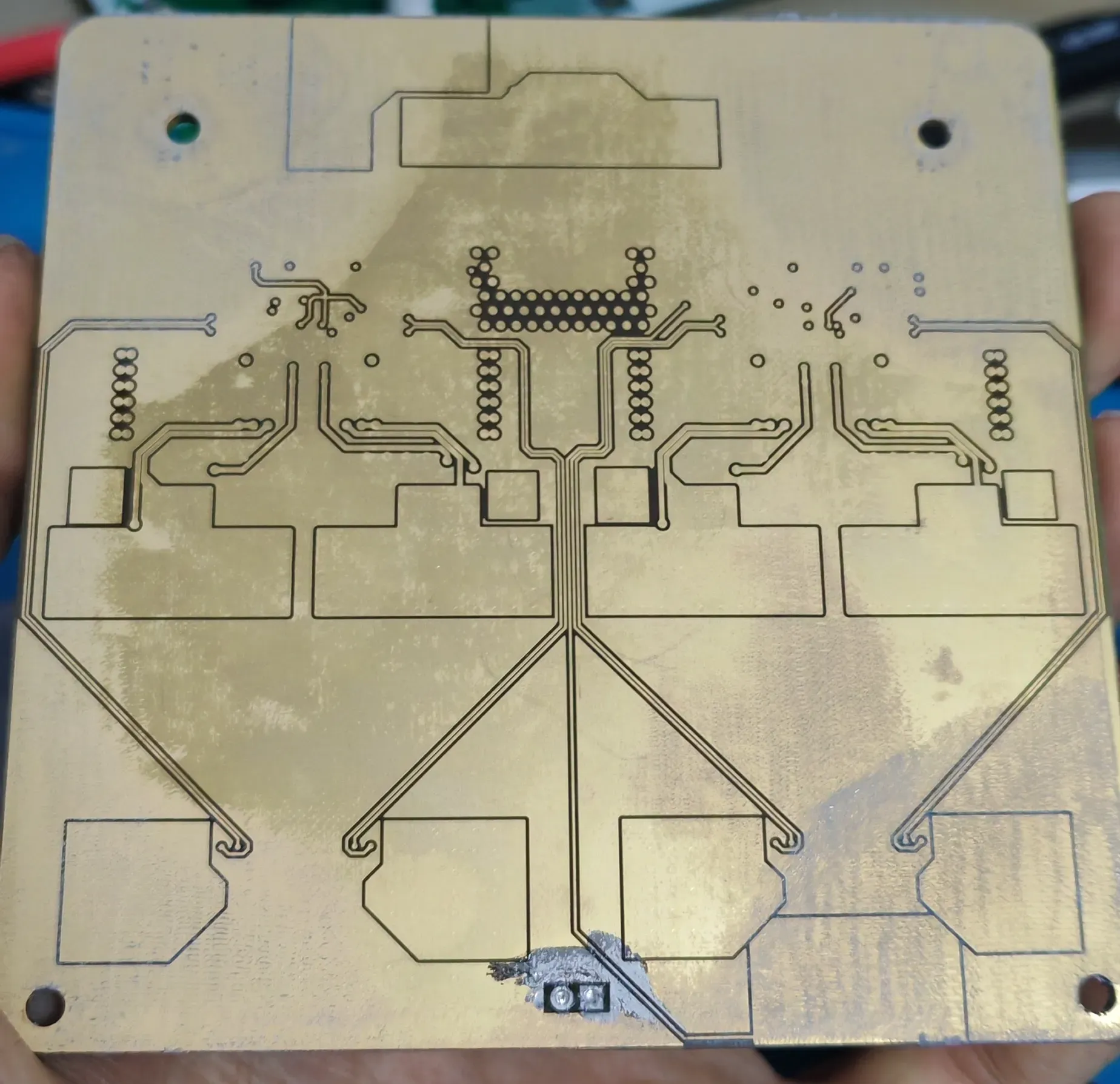
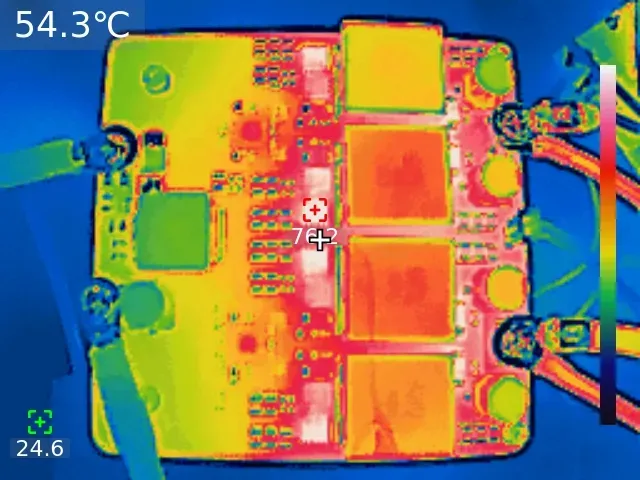
RE-48V700W
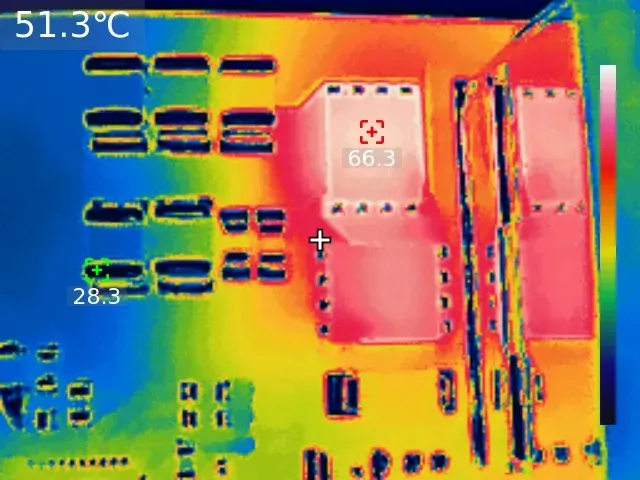
RE-48V700W-MOS1
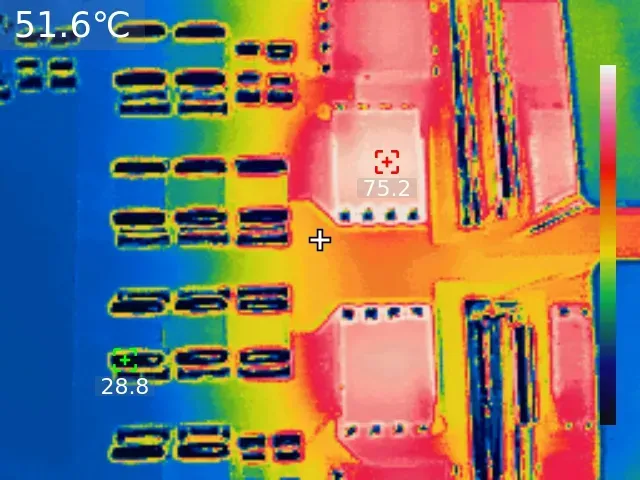
RE-48V700W-MOS2
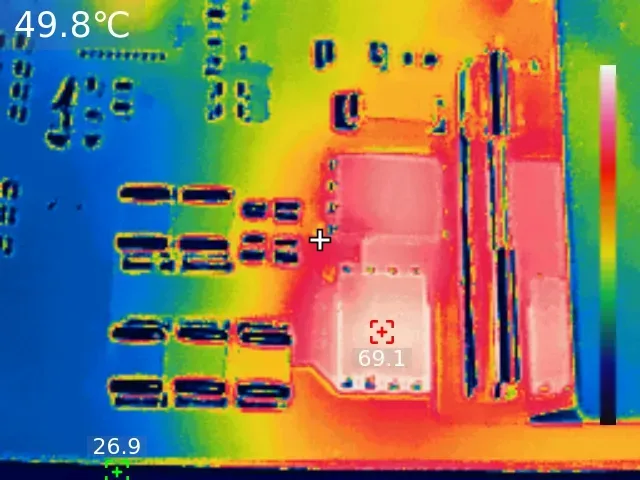
RE-48V700W-MOS3
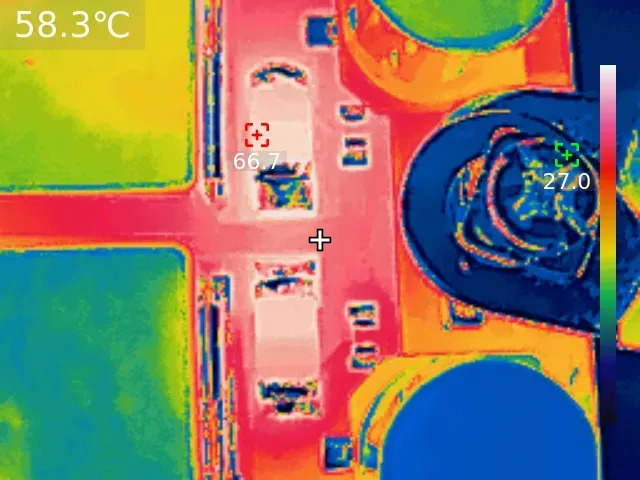
RE-48V700W-R
2. At that time, I don't know why, I used a plug-in pin header, and now I have switched to a patch.
3. Delete the RC absorption at SW, because after increasing the RC absorption, the power-on MOS tube twitches, and the temperature "flickers" between 100 degrees Celsius and room temperature.
According to the data sheet, the sampling resistance of 58.4A should be 5mΩ, but the measured power limit is 500W. The reason is not yet clear, so the sampling resistance has been reduced. After testing, it can output 700W.
After the test, I impulsively tried 60V input and sent a board (powered on LM5143 warm, about 34 ℃) plus a TVS.
Designed by Travellium (from OSHWHub)
Link:https://oshwhub.com/travellium/12v-desktop-power-supply
Design Drawing
 The preview image was not generated, please save it again in the editor.
The preview image was not generated, please save it again in the editor. Empty
Empty


Comment